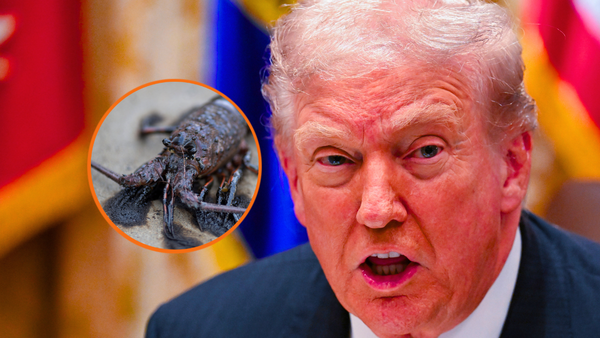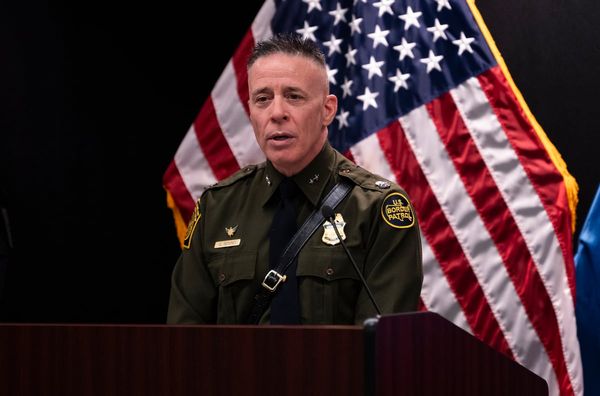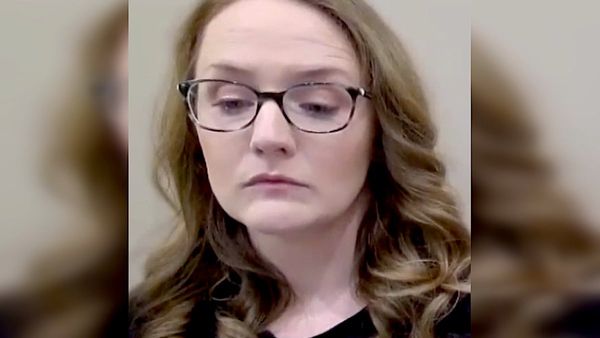Live facial recognition camera technology could be introduced on the Tube to help catch fare dodgers.
Transport chiefs are also considering whether to install new barriers that will make it harder for evaders to “tail-gate” fare-paying passengers.
Last week the Metropolitan police revealed it had made its 1,000th arrest of “most-wanted criminals” since the start of 2024 using facial recognition technology – including paedophiles, rapists and violent robbers.
Siwan Hayward, director of security, policing and enforcement at TfL, said the controversial technology was not currently in use to catch fare dodgers – but she was “really alert to” the opportunity to use it in the future.
She told the London Assembly’s transport committee on Tuesday: “Facial recognition, as a new technology, is being widely used by the Metropolitan police.
“We are working very closely with the Met on understanding the approach, the ethics, the biases and the potential issues with how facial recognition is deployed, and also with British Transport Police in terms of the use of facial recognition.
“In part of our thinking over the next five years about how we best use technology to be able to tackle fare evasion, and other more serious forms of criminality on our network, facial recognition is one of the elements of that, both proactive as well as retrospective facial recognition.
“We are not currently deploying facial recognition on our network. We are spending time to properly think through and garner views about the use of facial recognition.”
Told by Tory assembly member Keith Prince that the Met’s use of facial recognition had been “very effective” in reducing crime in Romford, Ms Hayward added: “It’s very much within the approach we are considering in terms of innovation.”
It came as one union leader warned that cuts to station staff – and the slow response from police - were to blame for an apparent increase in blatant fare dodging.
Jared Wood, from the RMT union, told a London Assembly inquiry that the British Transport Police was “massively overstretched” and that “response times can be enormous” to stations outside zone 1.
Mr Wood said at the top end of the Metropolitan line, around Rickmansworth, it can take “one-and-a-half to two hours to get a response from the BTP”.
TfL insists that it is winning the battle on fare dodging, despite complaints from passengers about the blatant way some travellers push through ticket barriers and ignore efforts to make them pay.
TfL claims that 3.5 per cent of fares were evaded in 2024/25 – down from 3.8 per cent of journeys in 2023/24, when the loss of income to TfL exceeded £130m.
TfL has set itself a target of cutting fare evasion to 1.5 per cent by 2030 – having failed to hit a target from 2022 of reducing evasion to one per cent by 2024.
TfL says it now has better data on the number of fare dodgers, largely due to 70 per cent of journeys being made by Contactless card, compared with 30 per cent pre-pandemic.
Susan Hall, leader of the City Hall Conservatives, last week told mayor Sir Sadiq Khan of her exasperation with the extent of fare dodging she encountered while travelling across London – including at Royal Victoria DLR station opposite City Hall.
Ms Hayward, asked whether an initiative in New York to introduce ticket barriers that were harder to breach had merit in London, said: “We are in active discussions with our gate-line suppliers about changing the design of our gate-lines.”
She insisted that there was no link between the rise in Tube fares and the rate of fare evasion.
TfL also plans to “nudge” passengers towards ticket readers on “open” systems such as the DLR, where passengers do not need to pass through a barrier to enter or exit most of the stations.
In February last year, TfL increase the cost of a penalty fare from £80 to £100 and introduced body-worn cameras for frontline staff.
TfL prosecuted 19,614 people for fare evasion in 2023 – up 56 per cent on 2022.
According to Caroline Russell, a Green member of the London Assembly, TfL recouped £1.3m last year from penalty fares but spent £22m on enforcement.
The Met police said more than 100 individuals arrested after being spotted by facial recognition had been involved in serious violence against women and girls offences such as strangulation, stalking, domestic abuse, and rape.
Of more than 1,000 suspects arrested, a total of 773 have been charged or cautioned.
The cameras capture live footage of people passing by and compare their faces against a bespoke “watchlist” of wanted offenders.
If a match is detected, the system generates an alert. A police officer will then review the match and decide if they wish to speak with the individual.
if a member of the public walks past an live facial recognition camera and is not wanted by the police, their biometrics are immediately and permanently deleted.
However the use of live facial recognition has been criticised by the capiaign group Big Brother Watch.
It said “Orwellian tech” turned the public into “walking barcodes” and was not the solution to “broken policing”.
Big Brother Watch said: “Facial recognition technology remains dangerously unregulated in the UK, meaning police forces are writing their own rules about how they use the technology and who they place on watchlists.
“This is an authoritarian technology that can have life-changing consequences when it makes mistakes, yet neither the public nor Parliament has ever voted on it.”







